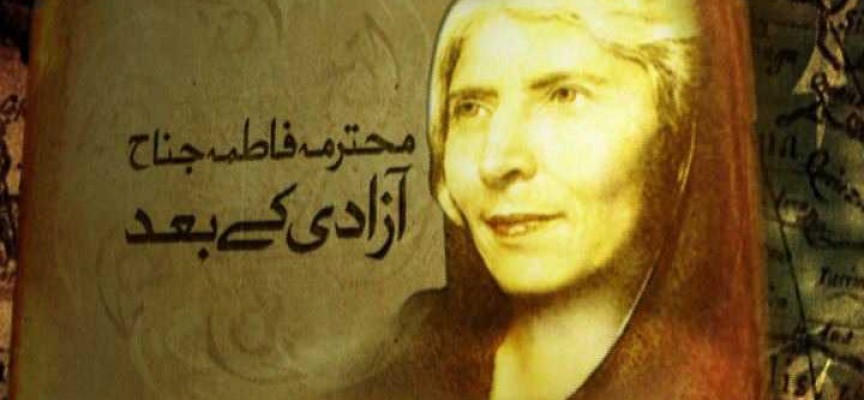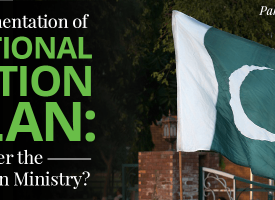The 8th of July marks the death anniversary of Fatima Jinnah. She was the sister of the Quaid of the nation, Muhammad Ali Jinnah, but this is not where her importance truly lies. She was a remarkable personality in herself and played an active role in the political movement that led to the creation of Pakistan. She was also a brilliant social activist and promoted women’s health, education and political presence, both before and after the creation of the new country. As a result of her endeavors, she is often referred to as “Khatoon-e-Pakistan” (Lady of Pakistan) and Madr-e-Millat (Mother of the Nation) as a mark of respect and admiration.
She was born in 1893, in Karachi, in what was then British India. She belonged to a fairly well-off Gujrati Muslim business family and was the youngest child to Jinnahbhai Poonja, a merchant. She was the closest to Jinnah out of their seven siblings, when it came to matters of affection and understanding. Hence, upon their father’s death in 1901, Jinnah took her under his learned wing, and despite traditional resistance from the community, enabled her to pursue modern education to the best of her ability.
She received her early education from Bandra convent, which she joined in 1902. This was at a time when education for Muslim girls was not considered a priority, and hostel living for the purpose was particularly frowned upon. As a result of her aptitude and hard work, she was given admission in the University of Calcutta in 1919, in an era where women did not commonly go for professional degrees. She graduated as a dental surgeon, and later went on to run her own clinic in Bombay in the year 1923. She also worked simultaneously at the Dhobi Talau Municipal Clinic, on a voluntary basis, as social work, which perhaps prepared her for her many tasks after independence.
However, upon the death of Jinnah’s wife, Fatima thought it was pertinent to give up her dental practice and thereafter moved in with him to take over his household affairs in the February of 1929. Thus began a new journey which lasted until the Quaid’s death in 1948, as she became his constant and most stringent supporter.
Fatima Jinnah had a strength of character and indomitable spirit that soon became apparent. She accompanied her brother everywhere he went, but worked quietly behind the scenes to ensure everything ran smoothly in his political and personal life. She was a strong advocate of partition and the creation of a separate homeland and hence an active member of the All-India Muslim League, where she served as Vice President of the women’s wing. When Jinnah was disheartened by the response received in the elections that should’ve led them closer to Pakistan, he decided to go live abroad and settled in London as result. She went along with him and stayed there for the full four years.
Fatima lived with Jinnah for 28 years in total, and made a good companion even when he was at his lowest. “Anxieties would have been much greater and my health much worse, but for the restraint imposed by her,” Jinnah claimed.
After the creation of Pakistan, Fatima founded the Women’s Relief Committee which later went on to become the basis for the All Pakistan Women’s Association (APWA). She helped facilitate refugees from India in settling into their new lives, following the mass migrations in the wake of the partition of the subcontinent. Her work was what inspired many other organizations to step up and assist the government with the necessary resettlements and housing of migrants. The new refugees that poured in after the invasion of Indian troops into Kashmir also led to similar problems. Fatima would accompany her brother to camps to talk to the women there, listening to their problems and encouraging and supporting them in those times of adversity. She remained a great philanthropist the remaining years of her life as well.
In 1965, Fatima Jinnah made an attempt to enter the politics of Pakistan at the age of 71. Besides her visit to East Pakistan in 1954, this was her first foray into the world of national politics after the partition. She was the candidate for the Combined Opposition Party of Pakistan (COPP), which consisted of five major political parties. She ran for the presidency against the incumbent President Ayub Khan, who she considered to be a dictator. Ayub Khan utilized state facilities, and wooed the press through legislation favors, students with promises of a revision of the University Ordinance, and the Ulema through claims that women could not run for the highest office in a Muslim country. Fatima Jinnah criticized his dealings with India in the Indus Water dispute, and her main selling point was the upholding of democratic ideals and principles.
Her rallies drew huge crowds, signifying the support she had from the common people of the country. 250,000 people came to her rally in Dhaka and a million lined the 293 miles to Chittagong. Her train was called the Freedom Special, and it was 22 hours late because she would be asked to speak at every station and stop on the way. But despite the great support she drew from the masses, the presidential election was an indirect one, and she lost by a narrow margin. Though she won a majority in some provinces, accusations of rigging in favor of Ayub Khan have never been properly settled since.
Muhammad Ali Jinnah provided the world with many testimonials as to the great personality of the Mother of the Nation. “My sister was like a bright ray of light and hope whenever I came back home and met her,” he said of Fatima fondly. He also once admitted to his naval ADC Ahsan, “Nobody had faith in me; everyone thought I was mad except Miss Jinnah,” proving how invaluable her support of his work had been as she served as his confidante and advisor.
After Muhammad Ali Jinnah’s death, Fatima wanted his biography written by a Pakistani author as she didn’t trust a foreigner with the material. She contacted G. Allana for this purpose. The work was eventually published as “Quaid-e-Azam Jinnah: The Story of a Nation”, while Fatima’s own unfinished biography of the Quaid, “My Brother”, was published by the Quaid-i-Azam Academy in 1987.
Fatima died at her house in Karachi in 1967. While the official cause of death was stated to be heart failure, the death is shrouded in mystery and rumors of assassination were never satisfactorily addressed.
Addressing the people of Pakistan, Fatima Jinnah once advised:
“March forward under the banner of star and the crescent with unity in your ranks, faith in your mission and discipline. Fulfill your mission and a great sublime future awaits your enthusiasm and action. Remember: ‘cowards die many times before death; the valiant never taste death but once.’ This is the only course of action which suits any self-respecting people and certainly the Muslim Nation.”
At this point in time, it would serve us well to heed these words, and remember the inspiring personality that was the Madr-e-Millat.







No comments!
There are no comments yet, but you can be first to comment this article.